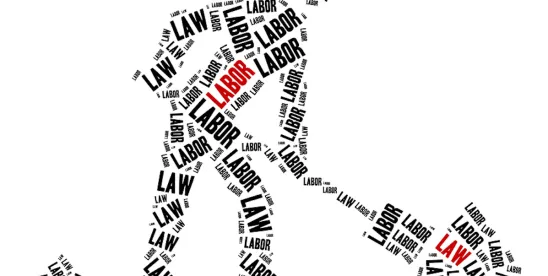Any question whether, in light of the recent election outcome, the Democrat-majority members of the National Labor Relations Board (NLRB or Board) would scale back their high-profile efforts to rewrite federal labor law to favor unions was answered only days after the election, with those members issuing a decision overruling a nearly 40-year-old case that established employers’ right to communicate with employees about the possible negative consequences of unionizing.
In Siren Retail Corp. d/b/a Starbucks, 373 NLRB No. 135 (Nov. 8, 2024) (“Siren Retail”), the three Democrat-appointed NLRB members – over the dissent of the sole Republican member – rolled back nearly four decades of precedent and in so doing, limited employers’ ability to tell employees that unionization may negatively impact their relationship with management. At issue in the case was this statement, made by a manager to employees:
If . . . you want to give your right to speak to leadership through a union, you’re going to check off “yes” for the election. If you want to maintain a direct relationship with leadership, you’ll check off “no.” * * * [If you are represented by a union,] the rules will then be grounded in a contract. And if it’s not in the contract, it’s not a conversation in my opinion that’s going to happen with leadership.
Before this case reached the full Board, the NLRB’s General Counsel, Jennifer Abruzzo, argued to an NLRB Administrative Law Judge (ALJ) that employees could understand statements like this as threats to eliminate an established benefit (i.e., to address workplace issues individually with their employer) if employees voted for union representation. But the ALJ rejected Abruzzo’s argument in a February 2023 decision, finding that the statement was permissible under the NLRB’s 1985 decision in Tri-Cast, Inc., 274 NLRB 377 (1985). As explained by the ALJ, Tri-Cast established the lawfulness of employer statements predicting what employee-management relations could be like if employees chose union representation. According to the Tri-Cast decision, “there is no threat, either explicit or implicit” in explaining to employees that unionization may negatively change the relationship between individual employees and their employer. The General Counsel appealed the ALJ’s decision to the full Board to test the ongoing validity of the Tri-Cast rule.
Although the Board agreed with the ALJ that the manager’s statement quoted above did not violate the National Labor Relations Act in this case, it used the opportunity in its November 8, 2024 ruling to overrule the Tri-Cast decision, explaining that going forward, the NLRB would apply the standard that applied prior to the Tri-Cast decision. Specifically, the Board stated that it was replacing Tri-Cast with “the principles reflected in the Supreme Court’s decision in NLRB v. Gissel Packing Co., 395 U.S. 575 (1969).”
Unlike the Tri-Cast rule, which protected an employer’s right to explain what would change if employees voted in a union, the “new” or “Gissel” rule requires that statements be evaluated on a case-by-case basis and be “carefully phrased on the basis of objective fact to convey an employer’s belief as to demonstrably probable consequences beyond his control.” 395 U.S. 575. The Board will now consider whether a “reasonable employee” could view their employer’s statements as a threat to take away a benefit if they selected representation.
Although it eliminated the Tri-Cast rule, in a small victory for employers, the Board decided that it would apply the new rule only on a prospective basis. Typically, NLRB decisions are applied retroactively to all pending cases. But recognizing that employers have reasonably relied on the Tri-Cast rule for nearly 40 years, the Board decided to apply the what’s-old-is-new again Gissel standard only prospectively, meaning any pending cases involving allegations of similar violations should not be impacted by the change in the law. That said, employers will need to modify their approach to addressing these issues going forward in light of the changed standard.
In his dissent, Member Kaplan criticized the majority’s use of this case as an expedient but improper vehicle to change the law, since Tri-Cast only dealt with whether the statements at issue were objectionable election conduct that warranted setting aside the results of an election. In contrast, Siren Retail deals with whether the statements at issue constituted an unfair labor practice, which involves a different standard of analysis and implicate Section 8(a)(1) of the Act. Moreover, the dissent asserts that even if overruling the Tri-Cast rule was a decision for the Board to reach in this case, doing so would be inconsistent with the Act and bedrock precedential case law, including Gissel. Of particular importance, Member Kaplan noted that, because the majority did not find that the Gissel rule would affect the outcome of Siren Retail, the proposed change in law cannot control and is merely non-precedential dicta. Lest there was any doubt in Member Kaplan’s disagreement with the majority’s decision, his dissent concludes by commenting that the majority’s decision in Siren Retail “would make Shakespeare proud” as it “is truly a decision full of sound and fury that signifies nothing,” Member Kaplan disagreed that the majority’s decision overruled Tri-Cast, saying it is “clear…that [the] case remains good law.” Even still, until the Board issues another decision on the matter, employers will need to comply with the Gissel rule.





 />i
/>i

